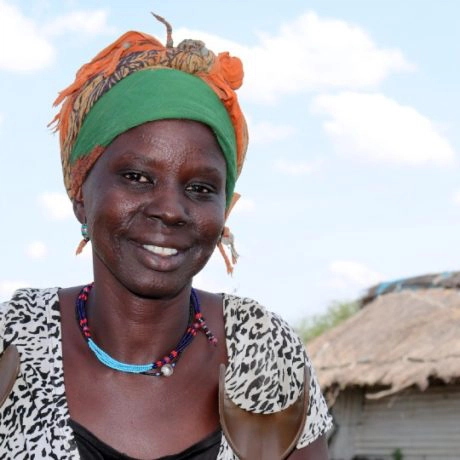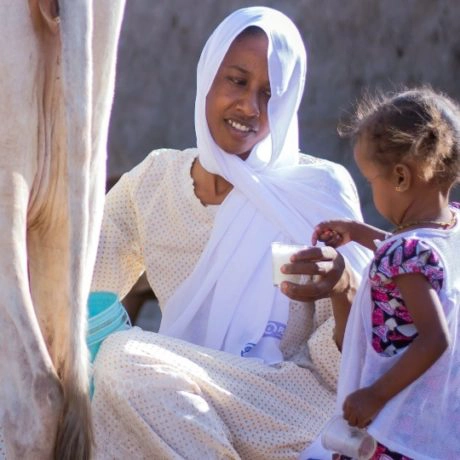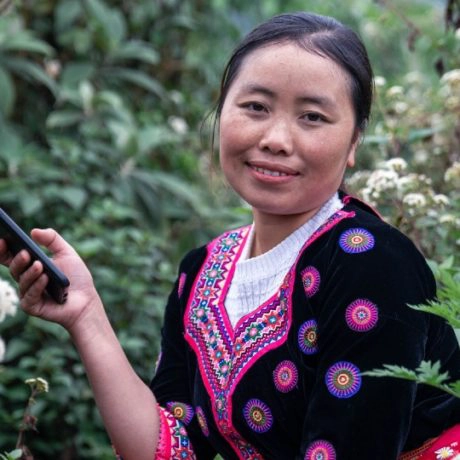News and Stories - Child marriage - 6 May 2024
Child Marriage Stories: Girls and Young Women Leading the Charge
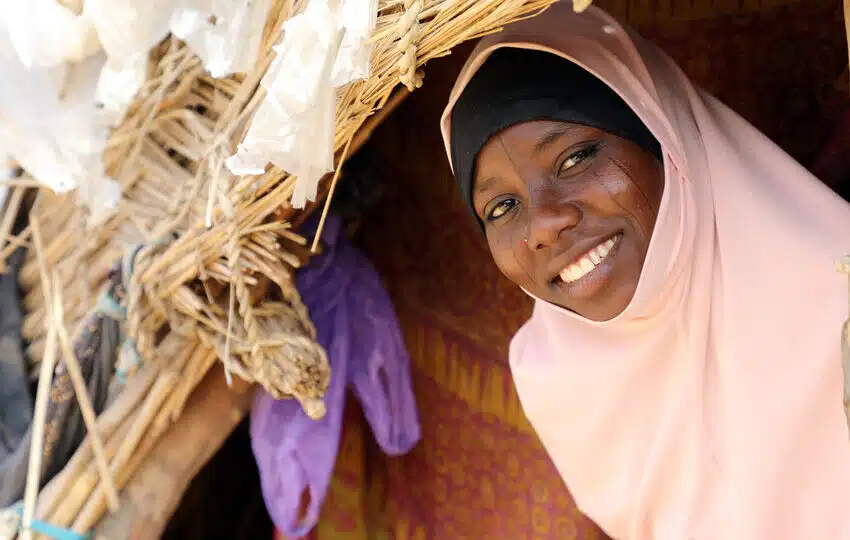
Every girl deserves the right to choose who, when – and if – she wants to marry.
But around the globe, child marriage denies girls the freedom to make their own decisions, be in charge of their bodies, and to have choices and opportunities for their futures.
Early and child marriage isn’t isolated to one culture, religion or group of people. It cuts across countries, cultures, religions and backgrounds. The root causes which allow it to continue are gender inequality, poverty, cultural norms and a lack of education. All of which we have the power to change.
And it’s girls and young women all around the globe who are leading the charge. Here are some of their incredible stories.
“When you empower a girl, you empower a whole nation”
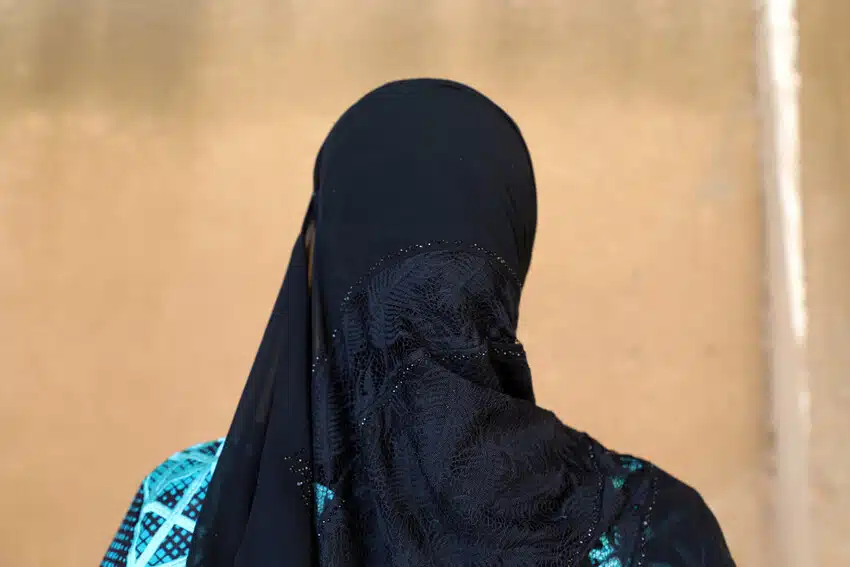
Photo: Cherifatou*, 17, has avoided an early marriage by learning sewing skills. © Plan International
17-year-old Cherifatou* from Niger was almost forced to get married because she was seen as an economic burden to her family.
It felt like the only option for her mother, after Cherifatou’s father, brother and uncle were killed by gunmen. Niger has significant humanitarian needs due to conflict, displacement and food insecurity. The violence affecting several regions in the country is continuing to force people to abandon their homes in fear of their lives
“Our resources are dwindling by the day. We live thanks to the generosity of the villagers who give us food,” shares Cherifatou. “To improve our living conditions, my mother wanted to give me in marriage to an older man, as I had become a burden for her. Another mouth to feed.”
As conflict results in declining economies and disrupts access to food, child marriage is seen as a desperate solution for financial stability for families. Niger has one of the highest rates of child marriage in the world, in part due to the political, environmental, and economic instability in the country.
I refused to give in, I refused to get married.”“Awareness raising sessions are often organised in our village. We were made aware of the importance of reporting cases of gender-based violence. This gave me hope, because there are solutions for people who have dropped out of school and are subject to violence,” shares Cherifatou.
Cherifatou was referred to Plan International’s implementing partner Inclusive Dynamics for Local Development (DIDL) who monitor the activities of the protection committees that have been set up in the region. Part of their role is to identify out-of-school girls at risk of early marriage and equip them with the skills and tools needed to generate an income.
“DIDL helped me a lot. Together we identified my needs and developed a business plan. I received the sum of 86,000 FCFA (130 Euro) to buy a sewing machine so I could attend training sessions with the village tailors for a month. Without a sewing machine, I could not become an apprentice tailor as you need to have your own sewing machine and pay the sum of 3,000 FCFA.”
Tailored to the local needs of communities, and in the context of the crisis, Plan International is helping girls like Cherifatou avoid early marriages and become financially independent. The programme ensures young people have the skills they need to earn a sustainable income and build a better future for themselves.
“Thanks to my sewing activity, I make an average income of 3,000 FCFA per day and a profit of 5,000 FCFA each week, which enables me to take care of myself, contribute financially to my family and save to expand my business.”
*Name changed to protect identity.
The Girls Who Stopped Their Own Weddings
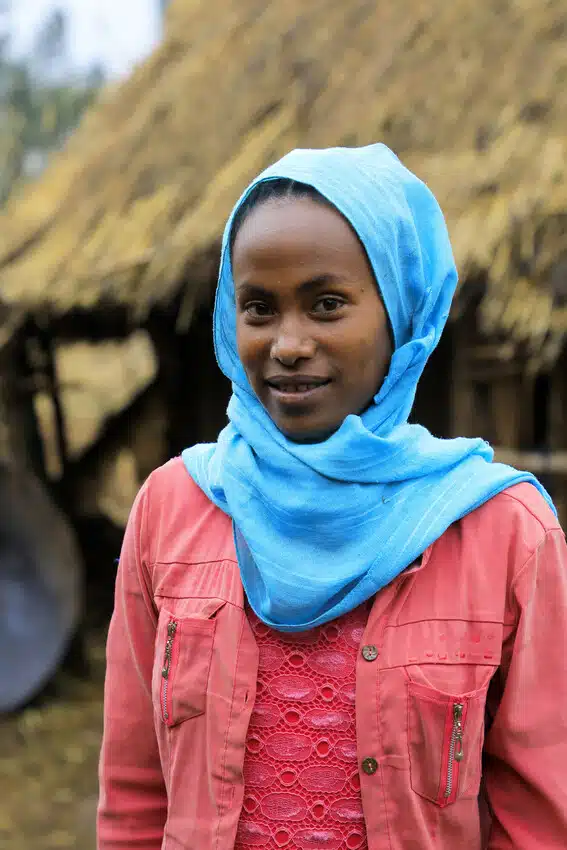
Photo: Debritu was able to stop her own forced marriage © Plan International
When her mother fell ill when she was 16, Debritu had to drop out of school. Not long afterwards, her father decided to marry her off.
“A family member told me about the marriage plans. I asked my parents to stop planning the wedding, but they refused. They told me they would be cast out of the community if they called off the marriage. They had already received money from the bridegroom’s family and arranged the wedding. I was crying and stressed. I considered running away from my family, but I was terrified since I didn’t know what I might encounter.”
Debritu met with the Champion of Change member in her village about what to do. She was directed to Fantanesh, the project facilitator who took her to the district’s bureau of women’s and social affairs.
“When I explained my situation to the staff there, they assured me that they could handle it without any harm coming to me. Then, my case was reported to the police. I told the police officers that my family was forcing me into marriage against my will. The commander of the police station immediately gave my mother and father notice to attend the police station.
My parents instantly changed their minds after hearing the police chief’s order and learning that they could go to jail for arranging a marriage for an girl under the age of 18. They called off the wedding ceremony and agreed to pay back the money they received for marriage by selling their cow. I was relieved and glad that the marriage had been called off. After that experience, I gained confidence and I wanted to help other girls in the community facing forced marriages.”
“If anyone I know is being forced into a marriage, I tell them to refuse it and report it to the authorities. It is their life. They should say no to child marriage!”
“I now take part in the community discussion that the My Choice for My Life project organises, and I have learnt a lot. I know now more about gender equality and sexual and reproductive health services. I also share what I have learnt with other youngsters in my community.”
My mother now regrets her earlier attitude. Now that she is aware that getting married at 16 or 17 is harmful for girls, she advises her neighbours not to marry their daughters off at an early age.- Says Debritu.
Shompa stopped her child marriage. Now she helps other girls to do the same.
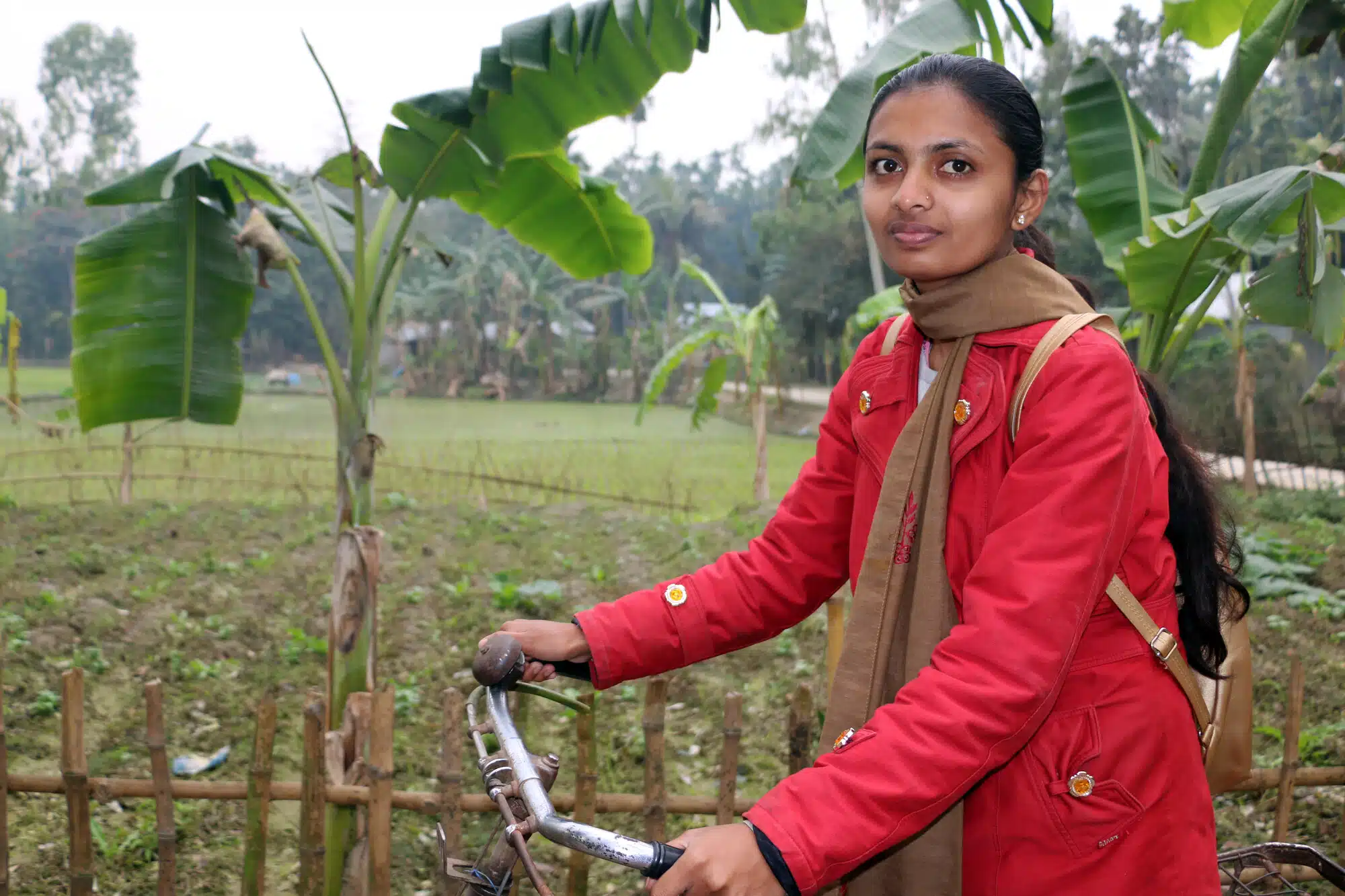
Photo: Shompa and her bicycle. © Plan International
At 16, after passing her secondary school examinations in 2017, Shompa’s family decided it was time for Shompa to get married. Despite her protests, Shompa’s parents refused to listen to arguments against the marriage, and the wedding plans continued.
Now 21, Shompa is a committed advocate against early marriage and has so far managed to stop five child marriages in her community.
“I visit the households, meet the families, share my own real-life example, and convince them against marrying their girls off early. In this way, I also assure the parents to not to worry about their daughters’ education. I will provide tuition free of charge,” explains Shompa. Shompa is determined to help all girls in Bangladesh reach their full potential through their education.
Now a second year student at college, Shompa covers the cost of her education by working as a tutor in her community. From a low-income family, Shompa’s father works in a restaurant, and her mother is a domestic maid. Her bicycle is her constant companion on her way to college and her work.
Shompa conducts regular courtyard sessions to raise awareness of the 2017 Child Marriage Restraint Act to highlight the laws against child marriage in Bangladesh and warn adolescent girls about the destructive consequences of early marriage.
Girls and young women are achieving remarkable things around the world. That’s why Plan International is working with girls in communities where child marriage occurs to make sure they know their rights. Because when we can create a better, more equal world for girls – we create a better world for everyone.
Child marriage denies girls their childhood, the chance to go to school, to be independent and to choose their own future. But you can create choices which prevent girls from experiencing the lasting trauma of child marriage. Make a tax-deductible donation today and show your commitment to ending this practice.



